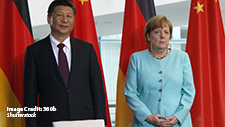The PLA and Student Recruits: Reforming China’s Conscription System
Wang Shumei
China’s conscription system has come into focus in recent years amidst changes in the regulations governing the enlistment of college student recruits into the country’s military forces. In 2001, in accordance with the amended Regulations on Conscription Work, the People’s Liberation Army began to enlist college students with 2,000 students being conscripted that year. Since then, the number has grown significantly to a yearly intake of nearly 150,000 in 2014. This paper accordingly examines the content of these changes, the reasons behind them, and their implications.
The author argues that the driving force behind the change in the system is that the enlistment of college students is urgently needed to rapidly advance the modernization of China’s national defense and the armed forces. According to the strategic objective of adapting to conditions of informationization and informationized warfare, increased demands are placed on the quality of personnel and the need for better-educated conscripts. While this need represents the primary driver behind efforts to recruit more students, other factors include the difficult labor market for graduates as well as the increase in the proportion of college students within a declining population of those of enlistment age.
Looking to the future, it is predicted that highly-educated college students will become an increasingly significant cohort within the PLA, playing an important role as it modernizes and adapts to the dictates of warfare in the twenty-first century.
Related Publications
-
ISDP Annual Report 2023
ISDP’s Annual Report for the year 2023. We look back on 2023, a year in which tensions and conflicts captured the strategic space in ISDP’s focus areas, making headlines around […]
-
Merkel’s China Legacy
Abstract Angela Merkel’s time as the Chancellor of Germany is soon coming to an end. An unofficial mainstay of the European Union, she leaves office having helped put in place […]
-
Women’s Rights in China and Feminism on Chinese Social Media
Abstract In recent years, women in China have to a greater extent than previously raised their voices about issues relating to women’s rights and gender equality. Social media has served […]


